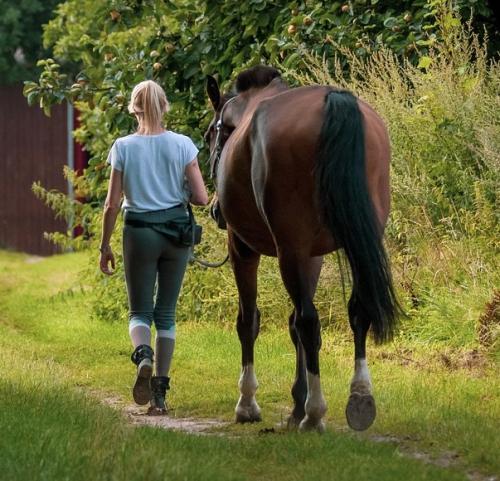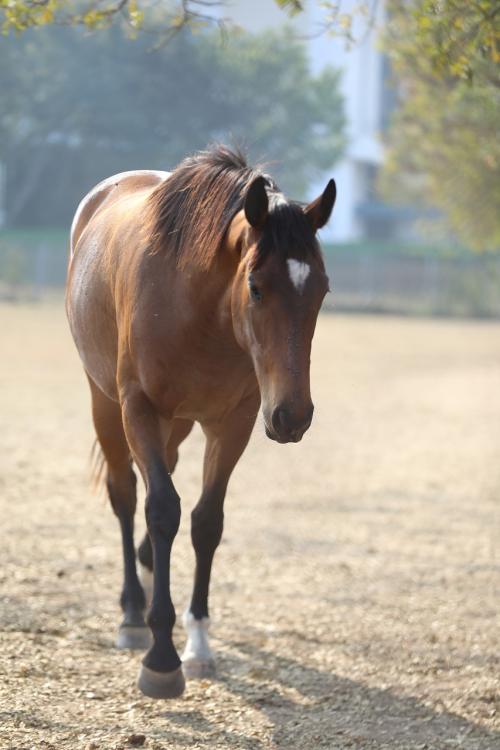10 Things You Might Not Know About Equine Colic
“Colic” is an unwelcome word in the equine world. The majority of equestrians have at least one colic story, with outcomes ranging from good to gut wrenching. Since colic is common and can have serious implications, it is an often-discussed topic, complete with plenty of anecdotal evidence, myths, and unscientific advice. We teamed up with Julie Dechant, DVM, MS, DACVS, DACVECC, professor of equine surgery and assistant director of the UC Davis veterinary hospital’s Large Animal Clinic to provide some clarity on equine colic.
- Colic is a common cause of equine mortality. It is the most common cause of death in horses that are 1 to 20 years of age and the second most common cause for horses older than 20 years of age (USDA APHIS NAHMS 2015). Colic is also one of the most common emergency veterinary calls for both ambulatory practices and referral hospitals (Gillen and Archer 2023).
The severity of clinical signs does not necessarily correlate to the severity of the colic. Older horses, in particular, may be stoic, making it difficult to evaluate pain levels. Medications, whether routine or administered to treat the clinical signs, can also mask pain responses.

It is okay to walk a horse that is colicking if it is safe for you and the horse. - It is okay to walk a horse when it is colicking. Walking does promote intestinal motility, so it can be helpful. However, do not walk a horse to exhaustion. If the horse is not walking comfortably, do not continue. Also, note that a horse that is already uncomfortable due to lay up or rehabilitation (and hence is at a higher risk for colic) might not be able to walk due to the injury or condition. Be sure to consider your safety, as well as the safety of the horse, when deciding whether to walk a horse or not.
- It is okay to let a colicking horse lay down, if they are quiet. This will vary by situation, as it is important that the horse does not thrash around and potentially injure itself. Rolling will not cause twisting of the horse’s intestines, as is commonly believed. As with walking, do your best to ensure that the situation is safe for you and the horse.
- It may not be possible to determine the cause of a colic and not all causes are preventable. This is especially true for recurrent colics. Despite exhaustive diagnostics, answers may remain elusive. Employing appropriate management practices is encouraged to reduce the risk of colic, but even known causes of colic are not always preventable.
- Transport to a referral hospital does not always mean that your horse must have colic surgery. At the UC Davis veterinary hospital, approximately 25% of cases brought in for colic end up having surgery. It is important to note that this is likely a high number relative to other clinics since the Large Animal Clinic often receives the more complicated colic cases. Globally, the average is less than 10% (Proudman 1992).
- Geriatric horses are able to recover from colic surgery as well as non-geriatric horses. Although horses that are 20 years of age and older have a higher incidence of strangulating lesions and are often euthanized without a surgical option, those that do go to surgery survive and recover as well as younger horses with similar lesions. Age should not be the sole determinant in declining surgical intervention.
- Advances in surgery and anesthesia have contributed to successful colic surgery outcomes. Facilities such as the UC Davis veterinary hospital have board-certified anesthesiologists that are available to provide dedicated expertise during colic surgeries. Advances in methods of assisted recovery and anesthetic techniques are also available to help horses recover safely from surgery.
Turnout is known to reduce the risk of colic. Horses confined to stalls are at a higher risk for colic. Even if your horses get

Ensuring adequate turnout reduces the risk of colic. turnout at home, this is important to remember when you are traveling and competing. Take your horse(s) for walks during horse shows, especially if you only have a few classes, so they do not spend too much time standing in the stall. If your horse is on stall rest for an injury or illness, talk with your veterinarian about the possibility of hand walking (with sedation if needed) to reduce the risk of colic.
- Although cases of colic appear to increase when the weather changes, research studies to date have not identified an association. Anecdotally, horses appear to be at an increased risk for colic when the temperature changes from hot to cold. This may be because horses do not drink as much water when it is cold, which can affect gut motility. In these situations, avoid unnecessary stress on your horse such as trailering. Bran mashes may be offered in moderation. Increase your horse’s time in turnout, if possible, and consider adding some salt to their grain to encourage them to drink more.
